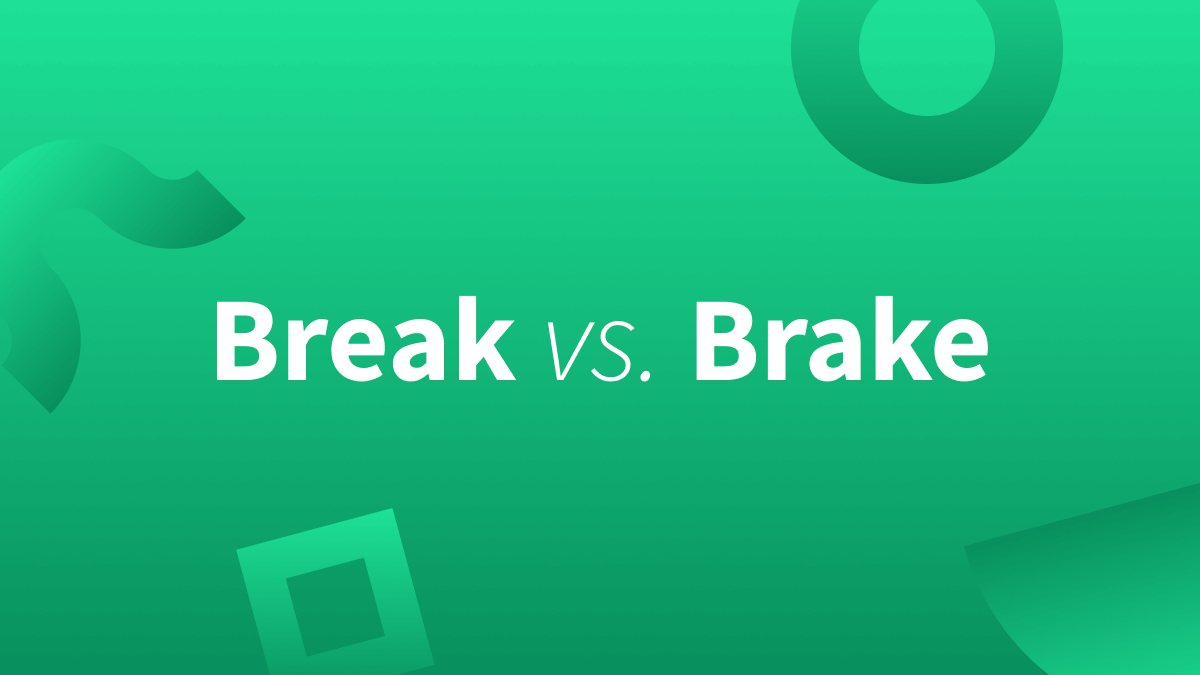- Both break and brake can be used as a noun or a verb.
- As a noun, brake refers to “a device that causes a car or machine to slow down or stop,” whereas the verb means “slowing down or bringing a machine or car to a stop by using a brake.”
- Break has a multitude of definitions. But it’s most commonly used as a verb meaning “to separate into parts or pieces as a result of a blow, shock, or strain. As a noun, it typically refers to “an interruption of continuity” or “a pause in work or during an activity.”
What Does “Brake” Mean?
Brake can be used as a noun and as a verb. As a noun, it refers to “a device that stops or prevents the motion of an automobile or machine by using friction.” Think of your car or bicycle brakes. Getting around in either one of these would be pretty scary if you didn’t have brakes.
When I was first learning to drive, my father always told me not to step on the brake so abruptly, unless it was to prevent an accident.
The scooter I bought Thomas for Christmas had faulty brakes, so we had to return it.
As a verb, brake means “to operate or manage a brake.”
I always brake for animals that are crossing the road.
I avoided braking hard because I knew the cake would smash against the car seat if I did.
What Does “Break” Mean?
If you were to search the word break in the dictionary, you might be overwhelmed by the number of definitions and uses this word has. Break can be defined as everything from “alter sharply in tone, pitch, or intensity” to “make an opening shot of a game of pool.” But we’ll review only the most common uses of the word break.
When used as a noun, break most often refers to “an interruption in continuity” or “a pause or rest during work, an activity, or event.”
We took a break from running because the sun was scorching, and we didn’t want to exhaust ourselves.
Abraham asked if he could take a break because he wasn’t feeling well.
As a verb, break also has many definitions. It often refers to “separate into parts or pieces with suddenness,” “damage,” or “interrupt (a sequence, course, or continuous state).”
My kids always claim they didn’t break something, even though I know they did.
I didn’t mean to break her new phone. I just accidentally let it slip between my fingers and the screen cracked into pieces.
During my piano recital, I was hoping that nothing would break my concentration.
How To Remember When To Use “Break” or “Brake”
Homophones like break and brake can be tricky.
Remember this:
There’s a lot at stake if you don’t use your brakes.
Nothing’s worse than heartbreak.
If this catchy sentence isn’t too helpful, then you could always try LanguageTool. This easy-to-use, multilingual writing assistant will detect all types of errors, easily provide synonyms, and offer stylistic improvements. Spelling and grammar mistakes will no longer break your heart.

